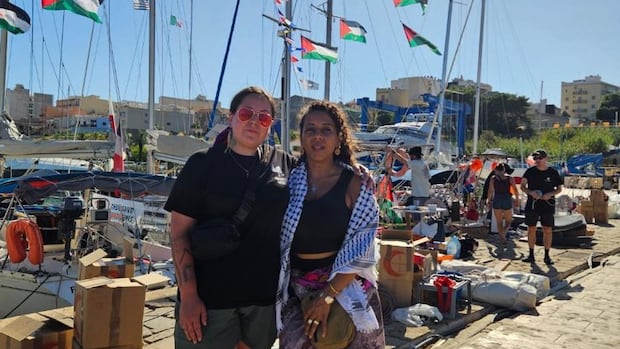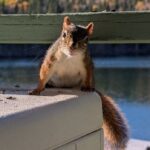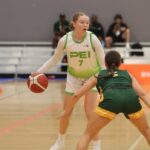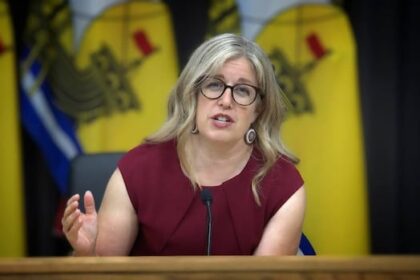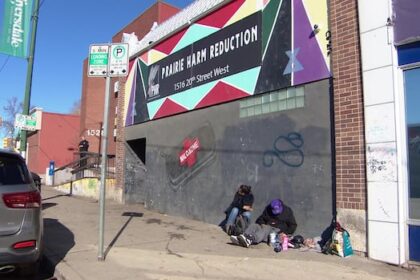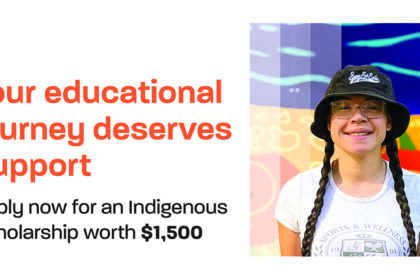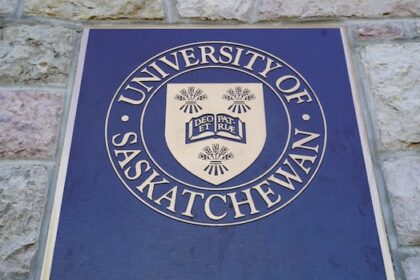UnreservedMskwaasin Agnew and Dr. Suzanne Shoush were well aware of the dangers of sailing with the Freedom Flotilla Coalition. But Agnew told Shoush that after almost two years of what a UN inquiry has called genocide in Gaza, “it’s actually more dangerous to do nothing.”Dr. Suzanne Shoush says joining flotilla was ‘obligatory’ for her as an Indigenous personElena Hudgins Lyle · CBC Radio · Posted: Oct 19, 2025 4:00 AM EDT | Last Updated: 2 hours agoToronto-based Indigenous health-care workers Mskwaasin Agnew and Dr. Suzanne Shoush prepare to sail with the Freedom Flotilla Coalition. (Submitted by Dr. Suzanne Shoush)LISTEN | Unreserved speaks with Agnew and Shoush:Unreserved56:15Global Indigenous Solidarity with PalestineDr. Suzanne Shoush was well aware of the risks involved in joining a flotilla sailing to Gaza. But she remembers well what her friend Mskwaasin Agnew told her before the two set sail: “At this point, it’s actually more dangerous to do nothing.”Agnew and Shoush, both based in Toronto, joined the Freedom Flotilla Coalition as part of the Canadian Boat to Gaza contingent, which launched its latest mission attempting to break Israel’s naval blockade and deliver food and medical aid to Gaza in mid-September. As both health-care providers and Indigenous women, they joined the movement offering their expertise and as a show of “global Indigenous solidarity,” Shoush told Unreserved from Toronto, after her leg of the voyage had ended. Both said they see clear links between their experiences of colonization and the experience of Palestinians, giving them a deep sense of unity and a responsibility to act. Unreserved explored how this drive is shared by many Indigenous people across Turtle Island, who are expressing solidarity with Palestinians through protest, community gatherings, and art.This past September, after two years of airstrikes, mass displacement and famine for Palestinians in Gaza, a UN inquiry concluded that Israel’s actions in the region constitute a genocide.A ceasefire began on October 10 after a peace deal was ratified between Israel and Hamas, but aid is still desperately needed in Gaza. From Hind Rajab to ConscienceAgnew is a Cree and Dene harm reduction practitioner from Salt River First Nation. Shoush, a physician and mother of three, is Coast Salish on her mother’s side and Sudanese on her father’s.The two sailed together from the island of Corsica, France to Catania, Italy in mid-September.But Shoush returned home days before they were to sail to Gaza, after their sailboat the Hind Rajab was declared unfit to travel further.Agnew continued aboard a larger ship named the Conscience, which carried doctors, journalists and activists, on Sept. 30.The Hind Rajab was part of the Freedom Flotilla Coalition to Gaza. It was named after the six-year old girl found dead in Gaza after being trapped by Israeli military fire in 2024. (Turtle Island 2 Palestine/Instagram)The Conscience was intercepted by Israeli forces 220 kilometres from Gaza on Oct. 8. Agnew and five other Canadian citizens on board were detained in Israel.Agnew was released on Friday and arrived back in Toronto on Saturday night. As of Monday, the remaining five activists have returned to Canada.Agnew said on social media Thursday she suffered “multiple human rights abuses” while detained in Israel. Devony Ellis, one of three Newfoundlanders also detained, told reporters she and the others were “subjected to several forms of violence and abuse.” Israeli forces have consistently intercepted flotillas bound for Gaza. The Freedom Flotilla launched missions on the Madleen and Handala this summer that were each intercepted, their crews detained. Flotillas have been met with various threats at sea including drone attacks. For Agnew, the risks were worth taking.“For myself, it actually comes back to the teachings that I’ve received and that we don’t leave anyone behind,” she told Unreserved host Rosanna Deerchild, before her voyage on the Conscience. ‘Global Indigenous solidarity’Agnew’s activism is rooted in her Indigenous culture. She said she gets questions from members of her community about why she talks so much about Palestine. “And it’s like, how could I not? It is absolutely linked to our struggle,” she said. “None of us are free until we’re all free. Individualism is not a part of our culture. It never has been.”Shoush says joining the coalition was “obligatory” for her as an Indigenous person.Conscience, one of the boats from the civilian Gaza-bound Freedom Flotilla Coalition to Gaza, enters Ashdod Port in southern Israel, after being seized by Israeli Navy forces on Oct. 8, 2025. (Emilio Morenatti/The Associated Press)“We have such a debt to the ancestors of our own that survived genocide, ethnic cleansing, mass starvation, forced expulsion … and I just feel like it’s impossible to watch that unfold again and do nothing,” she said.As a harm reduction practitioner working with Indigenous drug users, Agnew has witnessed the effects of intergenerational trauma stemming from the residential school system and other impacts of colonization. “Our people are overrepresented in the houseless population, overrepresented among people who use drugs, overrepresented among people who are incarcerated.”She sees parallels between Indigenous and Palestinian history, including the forced displacement of Indigenous children through the residential school system and the forced displacement of Palestinians during the Nakba of 1948.“I think about just how many wars that our people have lived through and it’s just so so similar,” she said. Mskwaasin Agnew joined the Freedom Flotilla Coalition as part of the Canadian Boat to Gaza contingent, which launched its latest mission attempting to break Israel’s naval blockade and deliver food and medical aid to Gaza in mid-September. (Mskwaasin Agnew/Instagram)In many Indigenous cultures, choices are informed by thinking of the next seven generations. Agnew fears for th will have on the seven generations in Gaza. “What will that look like for them?…I have no doubt that it’s going to look very much the same [as what she sees in Indigenous people in Canada].” Shoush sees the potential in coming together on a global scale. “I think that if Indigenous people are able to, across the globe, unite in solidarity, there will be less harms done to all of our communities.” Back home, Shoush said her community of Indigenous organizers is fully supportive of her and Agnew’s efforts. “We want to see Palestine thrive. We want to see Palestinians live. We want to see an end to the settler colonialism and the genocide.”ABOUT THE AUTHORElena Hudgins Lyle is a radio and podcast producer, currently writing for CBC Radio Digital. They are the co-host of the CBC Podcast Inappropriate Questions.
These Indigenous health-care workers joined the Freedom Flotilla to Gaza for global Indigenous solidarity’
